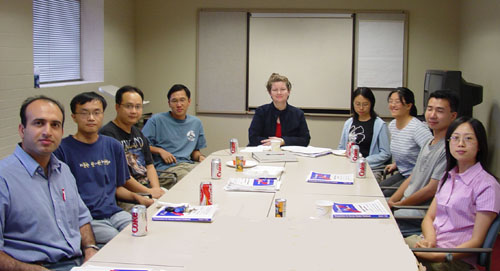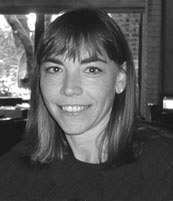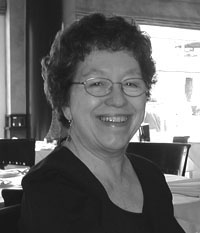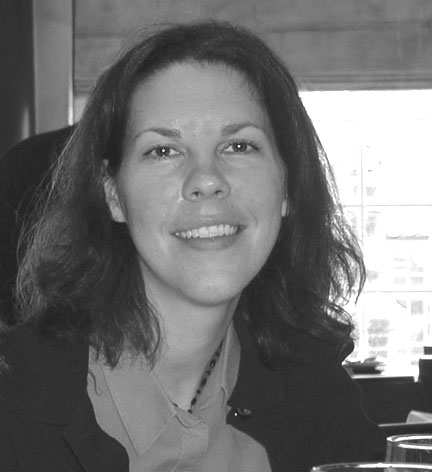North American Pronunciation of Technical Vocabulary Course Sciences and
engineering have become international disciplines; about fifty
percent of graduate students in engineering speak English as
a second language, and many have third or fourth language knowledge
as well. Few had an opportunity to take conversation courses
that featured technical vocabulary. As a result, graduate students
are often knowledgeable about the meaning of English words for
thermodynamics, genetics, or similar terms but have had little
instruction in pronouncing terms.
|
|
|
|||||||||||
Mr.
and Mrs. Martin have provided funds for a second session this fall.
Ms. Cluff has decided to expand the session by two meetings to
provide additional opportunities. Native speakers who participated
in the
recording sessions have volunteered to continue their work in developing
the on-line resources. Students from this summer’s waiting
list have priority for the fall session, but interested students
can go to the Cain Project Web Site at http://www.owlnet.rice.edu/~cainproj/ to find out more. Julia Amborski, the Cain Project coordinator, will
send information by e-mail to all graduate students. |
|||||||||||||
| Cain Project Home>>Newsletters | Fall Newsletter 2004X
X XPage
1
|




